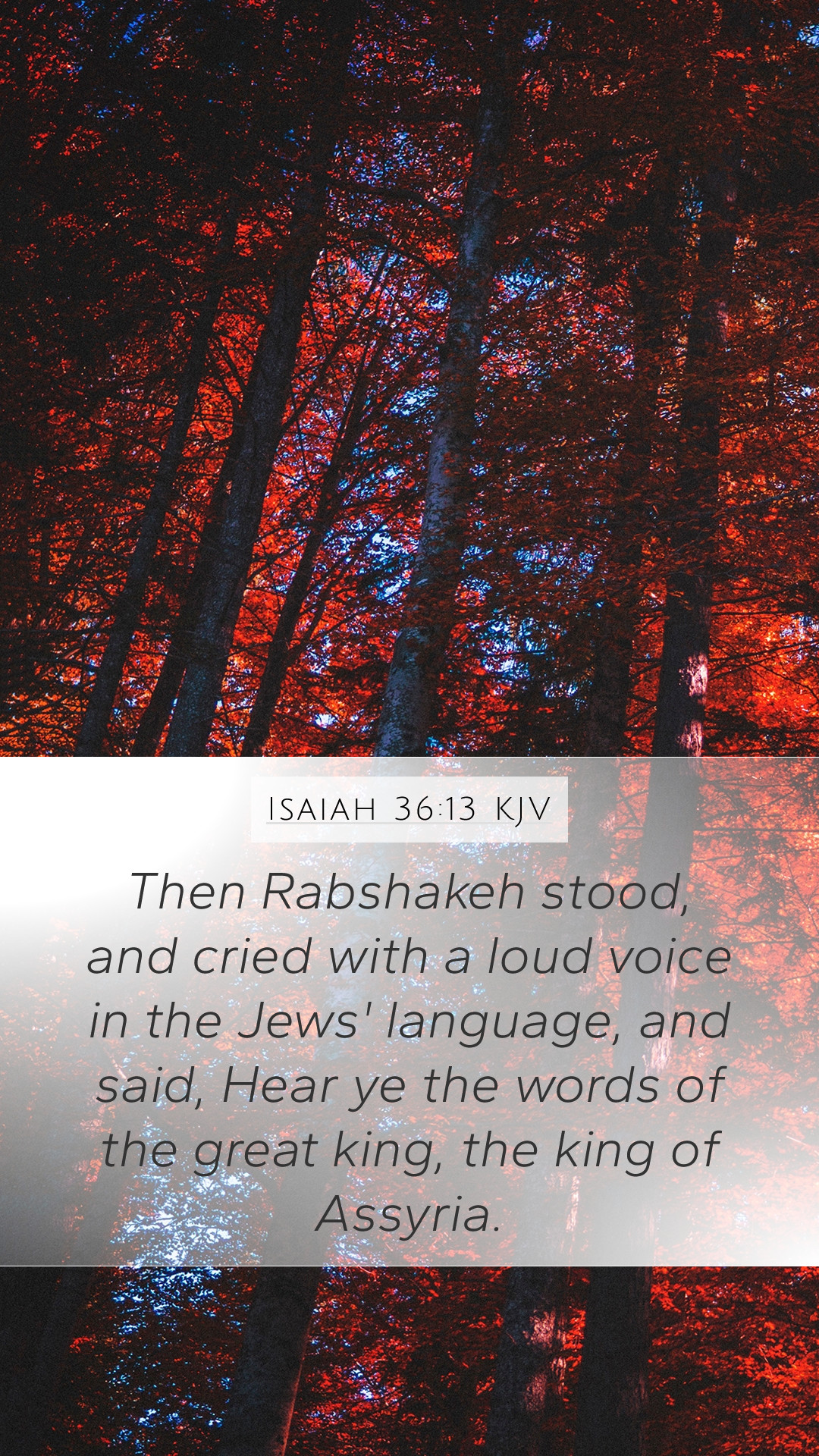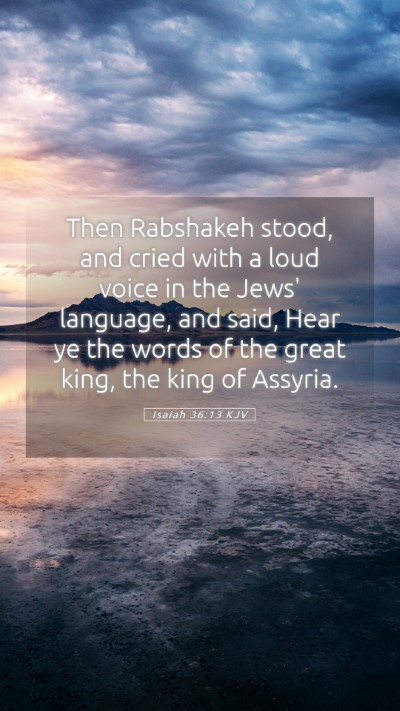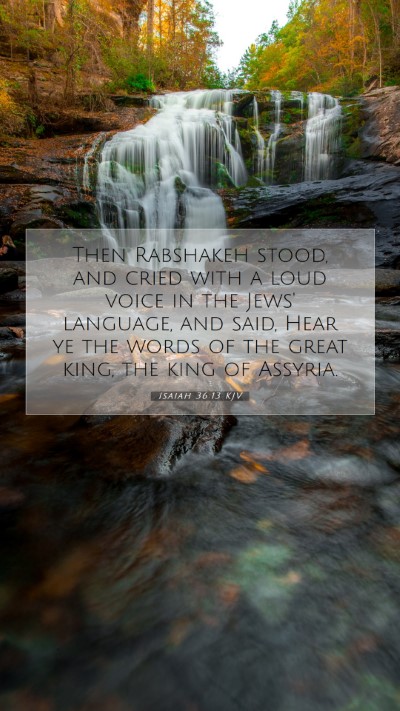Understanding Isaiah 36:13
Isaiah 36:13 is a pivotal verse that captures a moment of confrontation and declaration made by the Assyrian envoy, Rabshakeh. This verse is rich in meaning and significance, contributing to our understanding of the geopolitical and spiritual landscape of ancient Israel.
Bible Verse Context
This verse occurs during the siege of Jerusalem by the Assyrians, a critical moment in the history of Israel. The Assyrian king, Sennacherib, sought to undermine the faith of the people in their God through intimidation and blasphemy.
Verse Text
"Then Rabshakeh stood and cried with a loud voice in the Jews' language, and said, Hear ye the words of the great king, the king of Assyria." (Isaiah 36:13)
Commentary and Exegesis
Matthew Henry's Commentary Insights
Matthew Henry emphasizes the audacity of Rabshakeh and the contempt he shows towards the people of Jerusalem. He notes how Rabshakeh's loud proclamation was meant to instill fear and assert the power of the Assyrian king, suggesting that reliance on God was futile.
Albert Barnes' Observations
Albert Barnes underscores the significance of the language used by Rabshakeh. By speaking in the Jews’ language, he aimed to directly address the people, creating a connection that would amplify the terror of his message. This tactic was designed to sow doubt among the citizens regarding their leaders and their God.
Adam Clarke's Analysis
Adam Clarke provides a deep analysis of the rhetoric employed by Rabshakeh. He highlights how the envoy's speech was not just a political statement, but also a theological challenge to the belief in Yahweh's ability to save His people. Clarke points out that the very act of addressing the people in their language signifies a direct assault on their faith.
Key Themes and Lessons
- Challenge to Faith: The Assyrian king’s representative posed serious questions about the power of God in the face of military might.
- Psychological Warfare: The way Rabshakeh spoke directly to the people illustrates the use of fear as a weapon.
- Direct Communication: Speaking in the Jews’ language emphasizes the importance of understanding messages of authority and faith in one’s own tongue.
Application for Today
For modern readers, Isaiah 36:13 serves as a reminder of the importance of faith in challenging times. Just as the people of Jerusalem faced intimidation, believers today can draw strength from this narrative, knowing that faith in God stands firm against worldly fears.
Cross References
- Isaiah 7:1-2 - The fear of the people in response to a military threat.
- 2 Kings 18:26-27 - The same incident with Rabshakeh’s prior attempts to intimidate the people.
- Isaiah 10:12 - God’s sovereignty over foreign nations and their arrogance.
Conclusion
This examination of Isaiah 36:13 reveals profound insights into the nature of faith and fear. Understanding the historical context, the rhetoric of Rabshakeh, and the response of the people allows for a deeper appreciation of how this scripture verse speaks to issues of spiritual strength and resilience in the face of intimidation.
Further Study Suggestions
For those engaged in Bible study groups or online Bible study, consider using this passage to discuss the themes of fear and faith. Incorporate various Bible study tools and Bible study resources to facilitate a comprehensive discussion. Potential lessons could include:
- Understanding difficult Bible passages
- Applying Bible verses to daily life
- In-depth Bible verse analysis


